While no vitamins are superior to others when it comes to the role they play in our health, vitamin K is one that’s getting a lot of press lately. Largely due to recent studies that adequate intake of this fat-soluble vitamin plays a huge role in how long we actually live.
Many of you may know its valuable role in helping our blood to clot when we’re injured. A strange fact you may not know is that this effect was first discovered back in the 1930’s when a German scientist discovered vitamin K to be essential in preventing abnormal bleeding in chickens. The “K” comes from the German spelling of coagulation: “Koagulation.”
That’s about all most of us have understood about how “K” works in our body until now. You’re about to learn that getting enough can reduce your risk factors for several debilitating and deadly diseases including heart disease, osteoporosis, diabetes, metabolic syndrome and death!
Top 5 Vitamin K Supplements
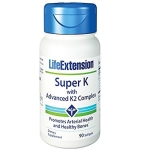 View on Amazon View on Amazon |
 View on Amazon View on Amazon |
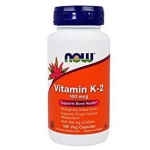 View on Amazon View on Amazon |
 View on Amazon View on Amazon |
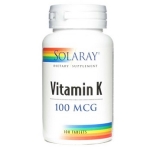 View on Amazon View on Amazon |
|
| Brand | Life Extension | Thorne Research | Now Foods | Garden of Life | Solaray |
| Overall Rating | 5 / 5 | 5 / 5 | 4.9 / 5 | 4.8 / 5 | 5 / 5 |
| Serving Size | 1 Softgel | 2 Drops | 1 Capsule | 1 Capsule | 1 Capsule |
| Price/Serving | $0.19 | $0.08 | $0.17 | $0.33 | $0.07 |
| Effectiveness | 5 / 5 | 5 / 5 | 5 / 5 | 5 / 5 | 5 / 5 |
| Quality | 5 / 5 | 5 / 5 | 4.9 / 5 | 4.8 / 5 | 5 / 5 |
| Taste | 5 / 5 | 5 / 5 | 4.8 / 5 | 4.7 / 5 | 5 / 5 |
| Digestibility | 5 / 5 | 5 / 5 | 4.9 / 5 | 4.9 / 5 | 5 / 5 |
What is Vitamin K
Vitamin K is a fat soluble vitamin that often gets overlooked by healthy-minded people and nutritional gurus. In fact, you’ll see it referred to as the “forgotten vitamin” quite often because of its lack of popularity. Knowing what science knows now, vitamin K will ever again be pushed to the back of the medicine cabinet.
This unsung hero of the vitamin world is responsible for maintaining healthy bone mass, keeping our arteries smooth and free of plaque, keeping our immune system functioning optimally, and studies have shown that vitamin K can also prevent a who’s who list of cancers throughout the body. It serves several other functions in the body, many of which are discussed in the next section.
Note: Our body is able to manufacture small amounts of vitamin K by using bacterial microflora. However, it’s only in small amounts and not enough to maintain adequate health long term.
There are 3 different forms of vitamin K:
1. Vitamin K1 (phylloquinone): This is the variety that’s found in abundance in green vegetables and in trace amounts of other vegetables. K1 is better than nothing and it’s used by the liver effectively to protect blood vessel walls. The main drawback is the length of time it’s effective inside the body. Vitamin K1 is cleared from the bloodstream 8 hours after it’s consumed.
2. Vitamin K2 (menaquinone): K2 is the preferred form of this vitamin. Fermented foods like Japanese natto (made from soybeans) are the highest sources of vitamin K2.
Bacteria in our intestines also create K2 in small amounts. K2 is best because it’s the most bioavailable and there is no toxicity associated with it, even at insanely large doses. K2 has also been proved to work in concert with vitamin D3 to prevent calcification in the arteries and promote calcium uptake into our bones.
Vitamin K2 is absorbed much more easily in the gut and remains biologically active in the bloodstream for up to 72 hours after it’s consumed.
3. Vitamin K3 (menadione): This is a synthetic vitamin that should be avoided at all costs. Infants injected with K3 have shown signs of toxicity and there is no evidence to suggest that K3 works well with vitamin D3 to improve bone and dental health – nor does evidence exist that it helps prevent calcification in the arteries.
Verdict:
While K1 from dietary sources is perfectly fine and many of those sources, like leafy greens, offer benefits far and above that of vitamin K, we should all strive to get most of our intake from K2 sources for maximum benefits. K2 is biologically superior and stays in the body much longer than K1. Sources of K2 contain plenty of natural fats too, which are needed for absorbtion of “K” by the gut.
Vitamin K3 can be dangerous in large doses and is typically only used by doctors treating patients with dangerous deficiencies.
Vitamin K Health Benefits:
1.Heart Health
If you’ve done a lot of reading lately about vitamins, minerals and the superfoods that contain them, you’ve likely learned a lot about antioxidants and how they work in the blood to prevent cholesterol and triglycerides from being oxidized. Oxidation makes them susceptible to sticking to the walls of the arteries which carry blood around our body.
Vitamin K’s effect on preventing heart disease is somewhat of a cofactor to the formation of plaque on arterial walls, but there’s a much different process at work here. It’s needed to produce a protein called MGP needed by our bones to process calcium in the blood for increasing bone mass.
Without vitamin K, not only do your bones become more brittle, the very calcium the body sets aside for fortifying bone mass calcifies inside our arteries, making them very susceptible to blockage and tearing!
2.Bone & Dental Health
Current numbers indicate that 1 in 3 women, and 1 in 12 men around the world have osteoporosis in varying stages. Calcium deficiency is often to blame. And rightly so, since a lack of bone density is the problem and calcium makes up 99% the mass of our bones and teeth. As you learned above, the body can have an ample supply of calcium and still not have that mineral find its way into our bones and teeth.
Without vitamin K, our bodies can’t produce adequate amounts of both the MGP protein and the Gla-protein osteocalcin which are needed to facilitate the absorbtion of calcium into our bones.
A handful of Japanese studies have shown the introduction of K2 supplementation in people suffering from osteoporosis not only halts bone loss, but actually can lead to increases in bone mass in those individuals. Researchers in the Netherlands long ago concluded that K2 from fermented products and grass fed dairy products are superior to K1 from veggies.
3.Alzheimer’s Prevention
Alzheimer’s is well known as a degenerative disease resulting from aggressive damage done to brain cells. What many of us are never told about is how the same dis-regulated calcium that contributes to late stage arteriosclerosis is also often responsible for the early-stage brain damage done to Alzheimer’s patient’s brains (source).
A study completed at University of North Carolina concluded that people more prone to broken bones were also more likely to have the APOE4 gene possessed by all victims of Alzheimer’s. In general, elderly patients with Alzheimer’s will also have low vitamin K levels in their bodies when tested (source). Unlike bone density markers, correcting your vitamin K intake after the disease has surfaced won’t slow the progression.
4.Cancer
Studies completed in the area of prostate, breast, oral, stomach, lung, liver and blood cancers show that vitamin K intake can be a factor in their prevention. This study showed conclusively that supplementation with vitamin K2 slowed and even halted the growth of all different kinds of lung cancer cells and concludes that VK2 (“vitamin K2”) may be a viable treatment for lung cell carcinomas.
This research summary goes further into detail, admitting that science hasn’t yet identified the method of action behind K2’s anticancer ability, but believes the vitamin helps to modulate two main factors that lead to cancer cells forming in the first place: 1) Tyrosine kinases and, 2) Phosphatases.
Keep in mind that studies focused on halting the disease used very high concentrations of the vitamin to halt the progression of these diseases; some administering up to 2.5 grams daily to achieve desired results.
In healthy individuals who don’t have cancer, the recommended levels listed further down the page should be more than adequate for cancer prevention.
5.Diabetes
Adequate vitamin K intake has an impact on both preventing type II diabetes from occurring, and helping to deal with the effects of the disease after diabetes or pre-diabetes have been diagnosed.
K2 makes cells more sensitive to insulin. Depending on which source you subscribe to, getting enough K2 can reduce your risk of developing type II by as much as 20%.
The entire process with regard to K2’s ability to increase insulin sensitivity is complicated for a lay-person to fully absorb. Vitamin K converts undercarboxylated osteocalcin (uuOC) to carboxylated osteocalcin (cOC) which acts as an endocrine system hormone needed for efficient glucose metabolism (learn more).
6.Metabolic Syndrome
A very specific link exists between low vitamin K intake and the incidence of metabolic syndrome (MetS) in adults.
Take a look at this study which examined over 800 adults ranging from ages 40 – 80. The study showed some profound results in people who had higher vitamin K intake. Factors such as waist circumference, blood glucose levels, blood pressure readings and overall Body Mass Index (BMI) numbers.
More studies need to be performed in this area to determine what specific metabolic markers K2 has the biggest effect on, but its role in promoting optimal glucose metabolism is likely where its effectiveness lies, as insulin resistance is a huge factor in starting the domino effect in the body that leads to full-blown MetS.
7.Faster Healing
People with low levels of vitamin K in their blood clot more slowly when injured and heal more slowly than those with adequate levels. Applied topically, vitamin K creams and lotions will make bruises go away faster and can help prevent bruising in people who’re prone to them.
Recommended Daily Intake:
The recommended daily intake for adults is set at 65 mcg and no distinction is made by the Food and Nutrition Board of the National Academy of Sciences regarding what form (K1, K2, K3) is best.
However, one of the web’s most trusted doctors, Dr. Joseph Mercola, recommends adults over 19 get at least 200 mcg of vitamin K2 daily for maximum health benefit in people who aren’t taking anticoagulant drugs for heart problems or stroke prevention.
If you are taking such medication, he recommends playing it safe at only 150 mcg daily and cautions pregnant and breast-feeding mothers to not exceed the RDA.
Teens need less at 90 mcg daily and preteen children require only 30 – 60 mcg for optimal health.
Note: Vitamin K isn’t toxic in high doses. Taking more than the RDA isn’t a problem as long as you don’t fall into any of the risk categories mentioned in the next section.
Warnings:
No overdose of vitamin K has ever been recorded, since it’s shuttled out of the body much faster than other fat-soluble vitamins, like vitamin A for instance.
However, because it increases the blood’s ability to clot, excessive intake of any dietary or supplement source is a bad idea if you’re taking any anti-coagulant drugs like Coumadin or Warfarin.
As indicated earlier, pregnant or nursing mothers should not exceed the RDA (65 mcg) unless their doctor identifies a deficiency and recommends you take more.
*If you have any health problems at all, it’s important to do your research and discuss any changes to your diet or supplement regimen with your doctor first.
Who Needs Vitamin K the Most?
• People who eat a diet high in processed food.
• People on a calorie restricted diet.
• Those suffering from diseases that inhibit healthy nutrient absorption such as Crohn’s disease, ulcerative colitis, celiac disease and any others that are known for interfering with nutrient uptake.
• People with liver disease.
• Taking drugs of any kind, in particular broad-spectrum drugs like antibiotics, cholesterol inhibitors and aspirin (consult your doctor if taking to thin your blood).
Food Sources Rich in Vitamin K2:
There are very few food sources in nature that have anywhere close to the RDA for vitamin K2, which is why at least mild deficiencies are so much more common than most people think. Green vegetables like kale, spinach, collard greens, swiss chard and broccoli (to name a few) are all rich in K1. However, since K2 is the superior form of this vitamin, Dr. Mercola and several other healthcare professionals recommend we don’t rely on non-fermented vitamin K1 sources for our daily needs.
Here are the 3 most potent sources of vitamin K2 found in natural foods:
1. Natto (~220 mcg per ounce): Nato is a Japanese delicacy made by fermenting soybeans into a paste. I won’t lie, most find the taste and smell to be very unpleasant, but it’s also very inexpensive to buy and you don’t need very much to get your RDA.
2. Whole Egg Mayo (197 mcg per ounce): It’s important to make the distinction between whole egg mayo like Hellman’s Mayo, and salad dressings like Miracle Whip which are often confused as being “real mayonnaise” but which are largely comprised of egg whites, vegetable oil and vinegar.
3. Miso (10 – 30 mcg per ounce): Miso is another fermented soybean paste. A cup of miso soup aids in digestion and can deliver almost half the RDA of vitamin K for adults. Keep in mind that the vitamin K content listed is for raw paste, so eating a cup of miso soup at a restaurant won’t guarantee you’re getting much K2 as there’s no way of knowing how much miso was used.
Animal and fish livers also contain K2, but how much usually comes down to how the animal was raised. Egg yolks can also contain significant K2, but commercially-farmed chicken eggs have less than half the K2 of free range, grass fed varieties (see Wikipedia).
Note about dairy sources of K2:
You’ve probably heard that dairy products like kefir, cheese and butter are high in vitamin K. If the animals are grass-fed, the resultant dairy will be rich in vitamin K2. It’s next to impossible to validate whether a product is grass-fed, unless you go straight to the farmer and see how the animals are raised for yourself.
Not to mention that it’s far too tempting for farmers to supplement their cow’s diets with corn, soy and grain in order to get more daily milk from the heifers and to fatten the bulls up for eventual slaughter more quickly.
Unfortunately, these feeds are usually genetically modified (read: GMO) and cause hormonal disturbances in the cow that affect the milk’s vitamin K2 content (among other things) and as a final insult; they cause hormonal disturbances in the humans who consume it!
Even popular “grass fed” butter manufacturer, Kerrygold has been taking shortcuts with their dairy cows in recent years (see this).
If it’s not 100% grass fed, chances are that the K2 content is severely compromised and most likely a poor dietary source of dietary vitamin K.
Vitamin K Supplement Reviews
Life Extension Super K with Advanced K2 Complex Softgels

Life Extension always gets a nod of approval from people looking for all natural ingredients, made without the typical fillers found in low-grade supplements.
This formulation is allergen-free and contains 1000 mcg of K1 and 1200 mcg of K2 in every dose. This larger dose ensures that you’re never deficient and realistically since K2 lasts up to 72 hours in the body, you could easily take one of these every other day with confidence. You won’t find a better price-point for such a large dose of vitamin K.
Thorne Research – Vitamin DK2 Liquid

This is an interesting liquid formula with a dropper included for accurate dosing. Thorne products are all allergen free.
The reason I like this one is that it also has vitamin D. Vitamin’s D and K2 work together to shuttle excess calcium out of the blood stream (where it can calcify on arterial walls) into to our bones to prevent and repair fractures and bone breaks. Each drop contains 500 iu of vitamin D and 100 mcg of K2: the optimal ratio that’s recommended for calcium control in the blood. With 600 doses in each bottle and the recommended dose being one or two drops per day, this is a great combination product if you’re looking to get your D and K2 in a single product.
NOW Foods Vitamin K-2,100mcg, 100 Vcaps

Each dose of this NOW Foods K2 and alfalfa formula has 100 mcg of vitamin K2 and 300 mg of alfalfa. You’ve been learning all about the benefits of K2 in this article; I’ve previously discussed the benefits of alfalfa in this article.
Alfalfa offers cholesterol and hormone-balancing benefits, can help reduce joint and muscle pain, and has proven immune-boosting benefits. At $0.10 per dose, this is one of the better values you’ll find anywhere for a quality K2 source.
Garden of Life Vitamin Code® – K Complex

This all natural formula from Garden of Life has the most biologically superior form of K2; raw MK-7 derived 100% from Natto. The K2 is contained in an omega rich liquid extracted from Chia and Flax seeds.
Last, this all-organic, vegetarian-friendly product has a blend of probiotics, digestive enzymes and alkalizing minerals taken from 17 different raw vegetables.
As with all Garden of Life products, no binders or fillers are used in any of their liqui-gel formulas. If you can swing the added price, this non-GMO-certified K2 and omega formula is a real heavy hitter!
Summary:
Unless you eat plenty of the fermented foods mentioned earlier, you’re likely not getting enough K2 in your diet. And the body just cannot produce enough of it in the intestines to keep levels steady in the blood and liver.
Since there’s no risk of over-dosing or other health related problems in healthy individuals, there’s just no excuse to not get enough of this health-boosting vitamin.
Vitamin K is no longer just the “blood clotting” vitamin.
Learning all you’ve learned today, supplementing with vitamin K to improve bone density and avoid calcification on the walls of your arteries should be a must.


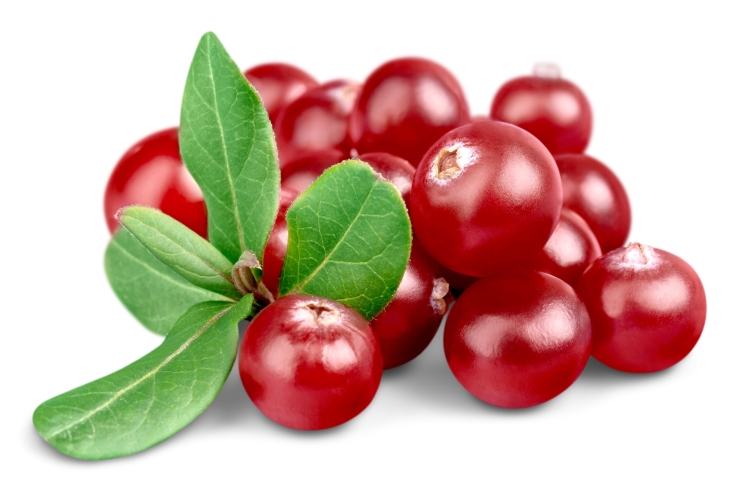

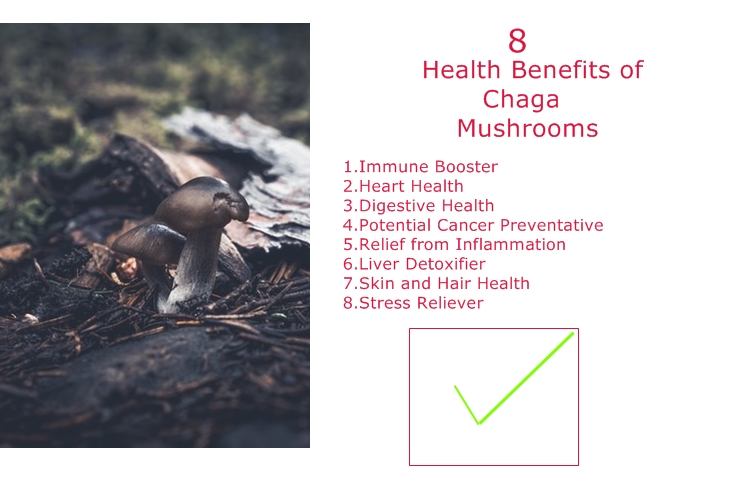
Thank you for the great article. I have now purchased Full Spectrum vit K2 and Rosita EPO for our child who has hypominerlaised molars. She is age 7 1/2. Please may I ask you how much of each to give her per day? I’m nervous to get the dosage wrong. Each K2 capsule is 600mcg.
Many thanks.
Brilliant job guys keep it up!!